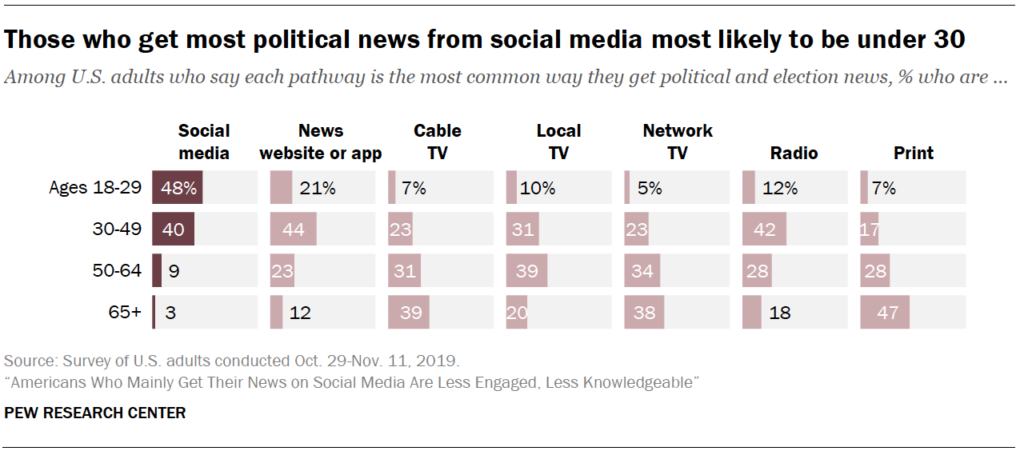Leer en español: Cómo las redes sociales impactan las opiniones políticas

Social media platforms have recently facilitated the organization of protests around racism across the country and even prompted teenagers and K-Pop fans to register for a Trump rally in June with no intention of attending.
But social media use affects young users’ political views and involvement in other ways like exposing users to certain views or determining their understanding of current events.
Different viewpoints or echo chambers?
According to a report from the Pew Research Center, the majority of surveyed teens said they felt social media exposed them to people with different backgrounds and views and helped them show support for causes and issues important to them.
For BYU students, the results of the report mirror their thoughts on how social media platforms influence their political views.
In an informal Instagram poll on The Daily Universe’s account, 89% of the 273 respondents said they believe social media has affected their political views and involvement. When asked for specifics, the majority of commenters said social media has exposed them to different viewpoints and a few said social media can create echo chambers.
BYU student Abby Bjorkman said social media has helped her see views beyond her own community, which is predominantly white. “Especially with the Black Lives Matter movement, I have been able to educate myself on others’ experiences in America besides my own, which is the perspective of a white female.”
While Bjorkman acknowledged it can be easy to fall into an echo chamber and only see posts from those with similar views, she feels she has followed a wide enough variety of people to hear opposing opinions.
“Some users can feel extreme on both sides and can almost be intimidating, but it is up to the user to manipulate how much they want to see,” Bjorkman said.
BYU public relations professor Pamela Brubaker said social media users sometimes only interact with content that reflects their own views, which then leads to the apps suggesting other similar content.
“News and information are pushed to us based upon the content we engage with and the people we engage with online,” Brubaker said. “As a result, if your friends are more politically active on Facebook or Instagram, you are more likely to have higher levels of exposure to political content.”
Social media as a primary news source
Another recent Pew Research Center study shows that people who turn to social media to stay up to date about current events generally pay less attention to and are less knowledgeable about the news and politics. The study found that 48% of young adults age 18-29 fall into this category and primarily get their news from social media.

The study used data from five different surveys conducted from October 2019 to June 2020. During this time major news and political events like the impeachment and the outbreak of the coronavirus occurred. Researchers asked respondents questions to measure their understanding of these events.
The results show that 57% of people who rely on social media for news had low political knowledge and only 17% had high political knowledge. The only group with a larger percentage of low political knowledge was individuals who get their news from local TV stations.
According to the study, those who primarily get news from social media are “more likely than other Americans to have heard about a number of false or unproven claims.”
Brubaker said the increased reliance on social media could stimulate more political discussions both online and offline, but it also might limit the political views and information users are exposed to. “To stay politically informed, it’s important to expand our sources. We should rely on more than the news that’s pushed to us. We should also actively seek to be informed.”




